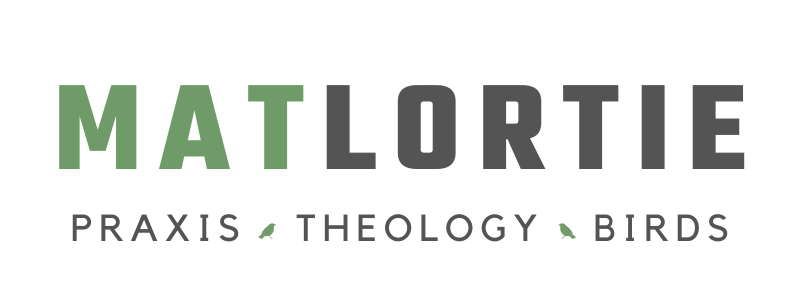I have tried to figure out what, if anything, to say in light of the significant moment we are currently witnessing. The epicentre of it is in America but that does not mean that Canada isn’t caught up in it- both in terms of culpability and result. The deaths murders of George Floyd, Brianna Taylor, and Ahmed Aubrey unleashed a powder keg that built up after countless years of abuse, oppression, and systemic racism. Four years ago, Colin Kaepernick took a stand, by not standing for the national anthem. Instead, he chose to kneel to highlight this oppression, specifically in regards to deaths at the hands of law enforcement. Kaepernick’s and those who followed suit sparked some conversation but mostly criticism and insults levied at them by the powerful. Consequently, Kaepernick has been unable to find a spot in the NFL since then.
As a Canadian in Winnipeg, I may want to push this away as an American problem but that would be a lie. We are not exempt from systemic racism and oppression and we have enough stories to prove it. This is including but is not limited to, our indigenous population, our Asian community and yes our black community as well. A couple of links worth noting Deadly Force and a denial of the problem.
That is the easier part to write. It is merely setting the table, providing the narrative from almost an arm’s length. The challenge is offering anything substantive from my position of privilege as a white male in the west. As I have reviewed what has been said, so much of it coming from white folks is anything from hi-jacking the narrative to make it about ourselves, to ignorance, and finishing up with doubling down on racist ideology. I want to be better than that. So here are a few thoughts from a privileged white dude who is trying to be an antiracist but doesn’t always do a great job of it.
“I’m not racist!” We hear this language all the time, Amy Cooper is a recent example of this denial but I think most of us have said it or at least thought to ourselves those words. Unfortunately, this is wrong, or at the very least the wrong way to look at things. Ibram X Kendi helpfully provides a better understanding.
What’s the problem with being “not racist”? It is a claim that signifies neutrality: “I am not a racist, but neither am I aggressively against racism.” But there is no neutrality in the racism struggle. The opposite of “racist” isn’t “not racist.” It is “antiracist.” What’s the difference? One endorses either the idea of a racial hierarchy as a racist, or racial equality as an antiracist. One either believes problems are rooted in groups of people, as a racist, or locates the roots of problems in power and policies, as an antiracist. One either allows racial inequities to persevere, as a racist, or confronts racial inequities, as an antiracist. There is no in-between safe space of “not racist.” The claim of “not racist” neutrality is a mask for racism. This may seem harsh, but it’s important at the outset that we apply one of the core principles of antiracism, which is to return the word “racist” itself back to its proper usage. “Racist” is not—as Richard Spencer argues—a pejorative. It is not the worst word in the English language; it is not the equivalent of a slur. It is descriptive, and the only way to undo racism is to consistently identify and describe it—and then dismantle it. The attempt to turn this usefully descriptive term into an almost unusable slur is, of course, designed to do the opposite: to freeze us into inaction. (9)
This is a lot to digest but it is necessary and reframed the situation in a much more important and healthier way. I, Mat, will say, do and think things that are racist. I, Mat, will also say, do and think things that are anti-racist. My task is to train myself to do the former less and less and the latter more. My task is to recognize when I am being racist, name it, learn from it, and stop doing it. To use Christian language is an antiracist sanctification process. But this is hard work, we never want to admit our racist tendencies and actions. We never want to admit that we have benefited from a system with elements that have been rigged in our favour. Do we always benefit and will all of us benefit? No, but this doesn’t minimize the reality of how the system functions.
But Kendi also helps us realize that there is no neutral position. We cannot take a step back and say I am going to sit this one out because fundamentally silence aids the oppressor at the expense of the oppressed. Silence speaks on the side of racism not anti-racism. In reality, our silence is deafening, it is muting the cries of our oppressed and dehumanized brothers and sisters. The challenge then for all of us is to be vocal antiracists, defined by Kendi as “[o]ne who is supporting an antiracist policy through their actions or expressing an antiracist idea.” We must stand with the oppressed, listen to the oppressed, and learn from those who are oppressed.
I am a minister of the gospel, a pastor and I believe this requires me to be a public theologian. It is my conviction that the message of Jesus and his early followers necessitate that any hints of racism must be excluded. In his Ephesian letter, Paul reminds us that:
“For [Jesus] himself is our peace, who has made the two groups one and has destroyed the barrier, the dividing wall of hostility, by setting aside in his flesh the law with its commands and regulations. His purpose was to create in himself one new humanity out of the two, thus making peace, and in one body to reconcile both of them to God through the cross, by which he put to death their hostility. He came and preached peace to you who were far away and peace to those who were near. For through him we both have access to the Father by one Spirit.” (2:14-18)
Yes, the primary point of reference is Jew and Gentile but I think the implication is much wider than that. And as white Christians, we are continually re-building this wall that Jesus himself tore down. Somehow complicity with racist ideology continues to be so intertwined with Christian theology. Many will try to minimize it but to our eternal shame, the church has a history of supporting racist ideas, people, and ideology. Remember what Kendi reminded us of above, the neutral position is a racist position. Thus, if we are not tearing it down we are reinforcing it and rebuilding it. We need to tear it down. Peacefully if possible, but cleansing the temple would not have been viewed as a peaceful act. And as an aside, I am convinced that Jesus would be standing with the protestors. I don’t think he would be chucking Molotov cocktails but I think he would be physically present to call out the injustice.
Here is a song to listen to while reading my suggestions.
Here are my incomplete suggestions to start the process of tearing down the wall. This is not to be read sequentially. First, we need to lament to cry out to God and acknowledge that our fellow humans have been dehumanized through this. Lament reminds us that things are not right, they are not how they ought to be. In the midst of these protests, we see a lot of ‘say his/her name’ seemingly a dehumanizing of dehumanized people. So we lament. In our crying out to God, we all need to repent. As we are often complicit we need to admit it to our God and our wronged fellow image-bearers. Repentance forces us to come to grips where we are heading the wrong way and then follow the better path. We need to listen to and learn from our oppressed brothers and sisters. There are countless resources, books, podcasts, and other mediums that offer answers to the question ‘what can I do?’ We need to take those seriously. We need to listen to those stories. I will put a few I found helpful below. Beyond this, we need to act. We need to put into practice what we learned, maybe this means walking in a protest line. But it also means naming racism when you see it. And let’s not make it about us.
Again, this is incomplete and inadequate. And one of the steps I need to take as a pastor is to allow more diverse representation to be evident in my sermons and sermon prep.
I hope it is a start because I really want to be an antiracist.
Some helpful resources I found.
The author I mentioned above Ibram X. Kendi has a wealth of good articles and a few books specifically How to be an Antiracist. My wife found this book last year and I got it from the library in the fall. It opened my eyes to a lot of things.
From Latasha Morrison’s Be the Bridge 16 tips for white people: they have a whole page of resources here https://bethebridge.com/we-recommend/
Austin Channing Brown has a book I am going to get (hard copy when I can get it locally) but here is a sermon from a couple of years ago.
There are countless more.




